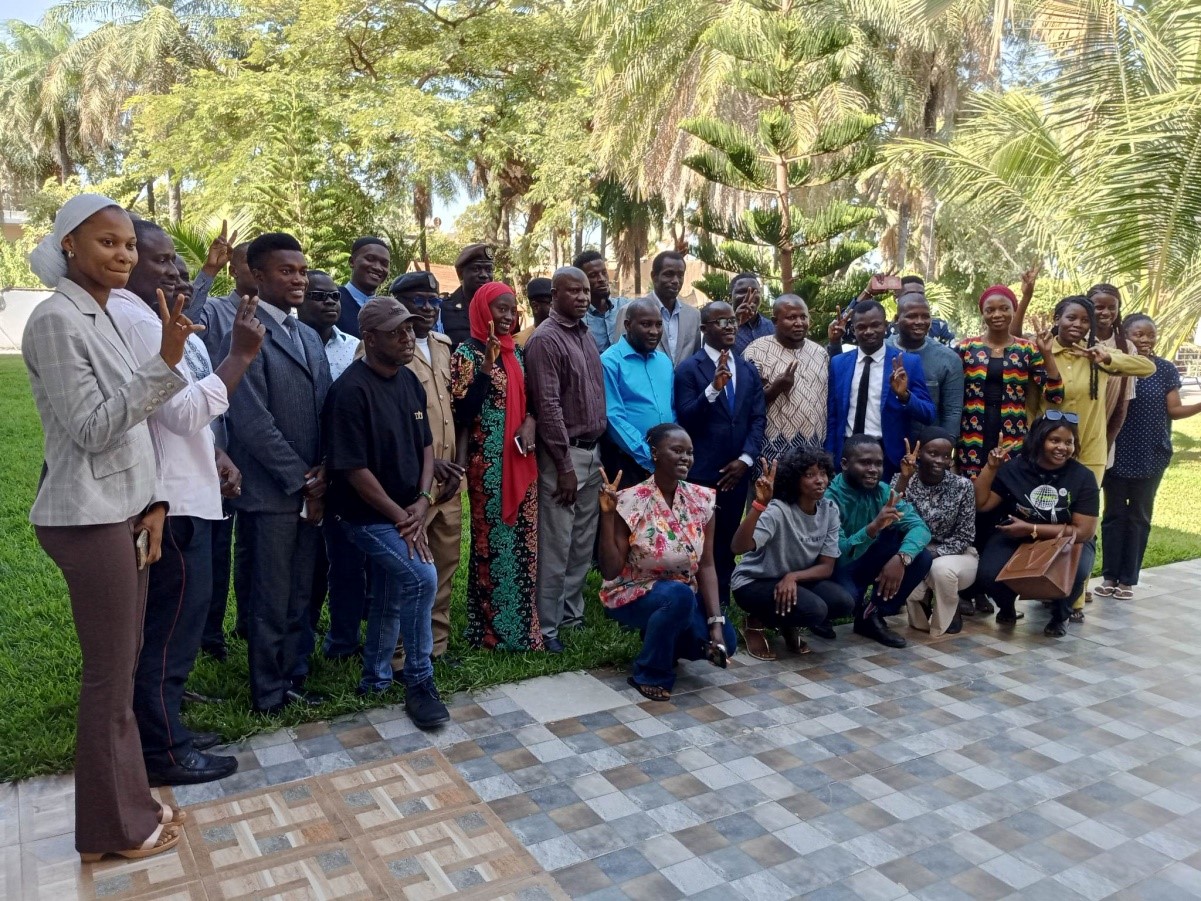Kebba Ansu Manneh
Stakeholders drawn from the civil societies and the media have renewed calls for the government of the Gambia to promulgate the National Security Council Bill Act which they believe will help the Office of the Ntional Security in the implementation and reform of the security sector.
They made this demand at a day-long stakeholder’s forum organized by the Office of National Security (ONS) and Center for Research and Policy Development (CRPD) with funding from the African Transitional Justice Legal Fund (ATJLF), where they also called on the government of President Adama Barrow to resuscitate the draft constitution.
Madi Jobarteh, Director of Westminster Foundation Gambia chapter, and a human rights activist recalled that most of the security institution was undermined and abused in perpetrating various forms of violence during the era of dictatorship.
He urged for an urgent need to reform the seucrity sector as well as their mentalities in bringing them under a democratic dispensation.
According to him, security sector reform entails many issues including passion, laws, policies, performance and delivery, the welfare of the men and women in uniforms, and how they are to be addressed.
He further observed that the ONS is still without existing laws that define its relations with the NIA, Police, Immigration, and Office of the President among other security outfits.
“Until now Gambia Armed Forces Act remains unchanged, the Police Act, the Prisons Act, the Drugs Control Act, and the NIA Act all remain unchanged. These Acts are necessary to change in order to address some deficiencies and ensure delivery and national stability,” Jobarteh pointed out.
He added: “The office of the national security needs to look into these issues and if you look at our police stations you will realize that they need to be rehabilitated including the Mile Two Prison. Beyond that, the salaries and welfare issues need to be addressed not to mention certain practices that still prevail including the issues of the checkpoints, the ways, and manners arrests are been done, and the issue of bail all these issues need to be addressed.”
Cherno Gaye, Activista Gambia, reiterated that implementing the security sector reform processes will be practically impossible without the promulgation of the National Security Council (NSC) Act of 2020, which outlined the modus operandi of the Office of the National Security (ONS) as well as the Security Sector Reforms (SSR).
He added that the government must take resolute step to resuscitate the draft constitution that was primarily designed to replace the 1997, Constitution and correct all the wrongs of the past regime.
He observed that if the government is not ready to recall the draft constitution it must look out for ways and means of amending the 1997 Constitution that will adequately address the many legal challenges confronting the nation.
“If President Adama Barrow and his Cabinet can amend the issue of age limit and protection of the seating national assembly members when dismissed by their parties, they should also be willing to bring back the draft constitution or make amendment of 1997, constitution,” he opined.
Abraham K. Mendy, Chief of Staff, Office of the National Security (ONS) emphasised the importance of the security sector reform as a catalyst for national development, stressing that his office has not been relenting on its core mandate since its inception as depicted by the many initiatives bankroll the ONS in propelling the reforms process.
According to him, ONS has been able to formulate the draft National Security Council Bill and its validation, auditing of the personnel of the security forces for rightsizing or downsizing, develop of arrest and detention manual, drafting of the Security Sector Reforms Strategy and the National Security Strategy documents among others, noting that all these initiatives are locally funded by the Government of the Gambia without any support coming from the donor partners.
He described the forum as an important avenue to sellout the program and activities of the ONS to the stakeholders and the public as well as to sensitize the masses about the operation of the ONS, adding that some of the challenges facing his institution include the reluctance of some key stakeholders in embracing the security sector reform agenda, no budget from the government to support the security sector reform, coordination of partners support, failure of citizens to take ownership of the reform process, the civil-security relationship among others.
Sait Matty Jaw, Director of Center for Research and Policy Development (CRPD) hailed the dialogue as very important and timely as it is meant to showcase the work of the Office of the National Security (ONS) while applauding the African Transitional Justice Legal Fund (ATJLF) for bankrolling the confab for the civil societies and the media.





